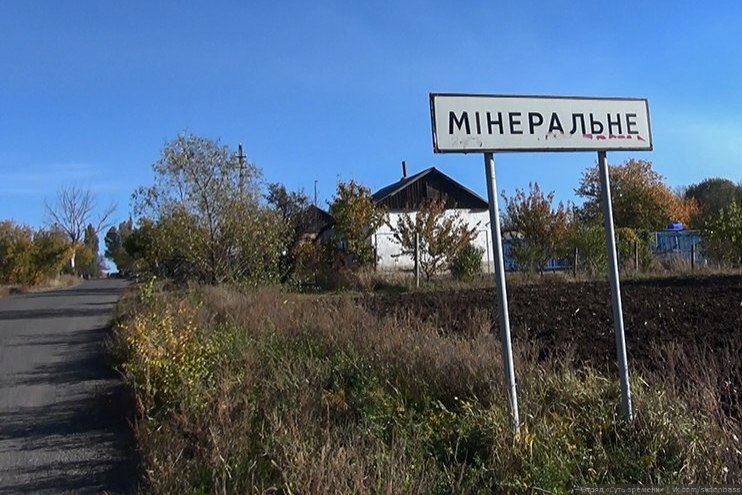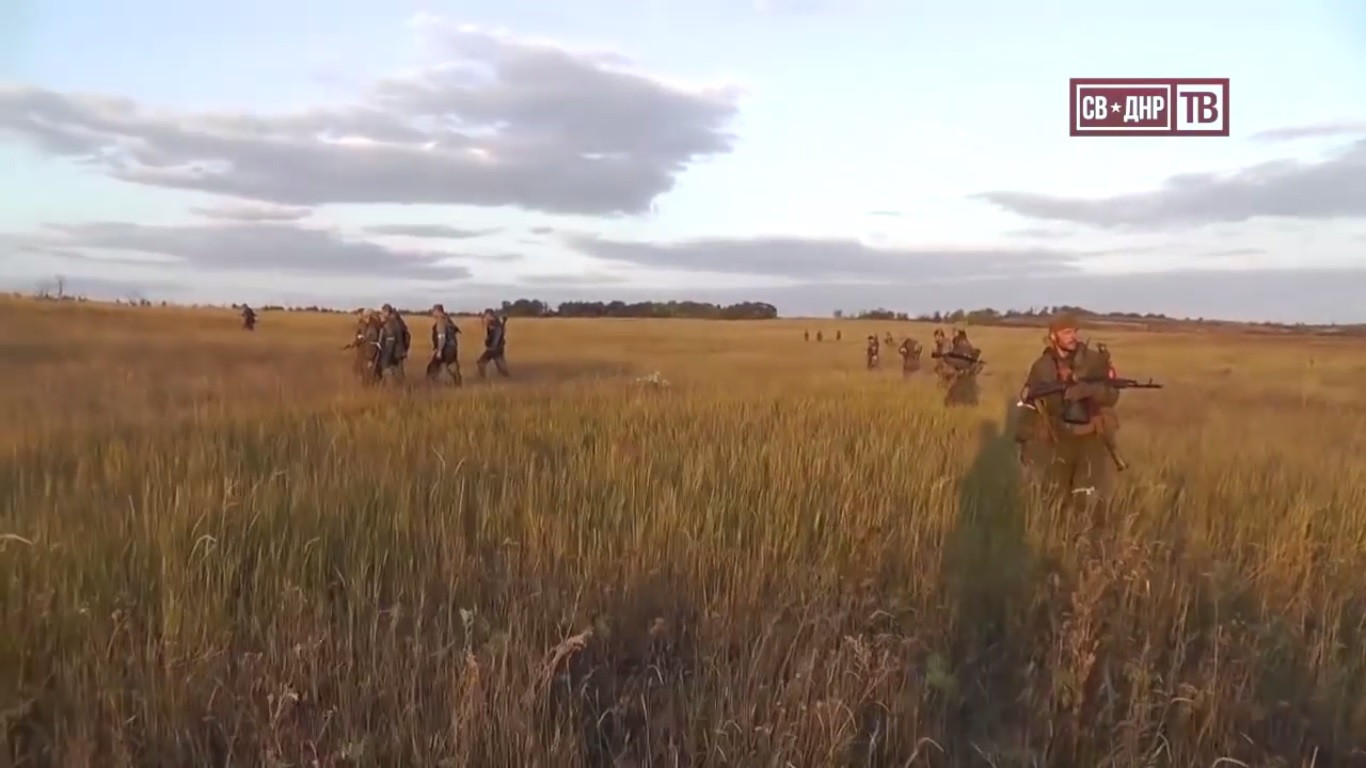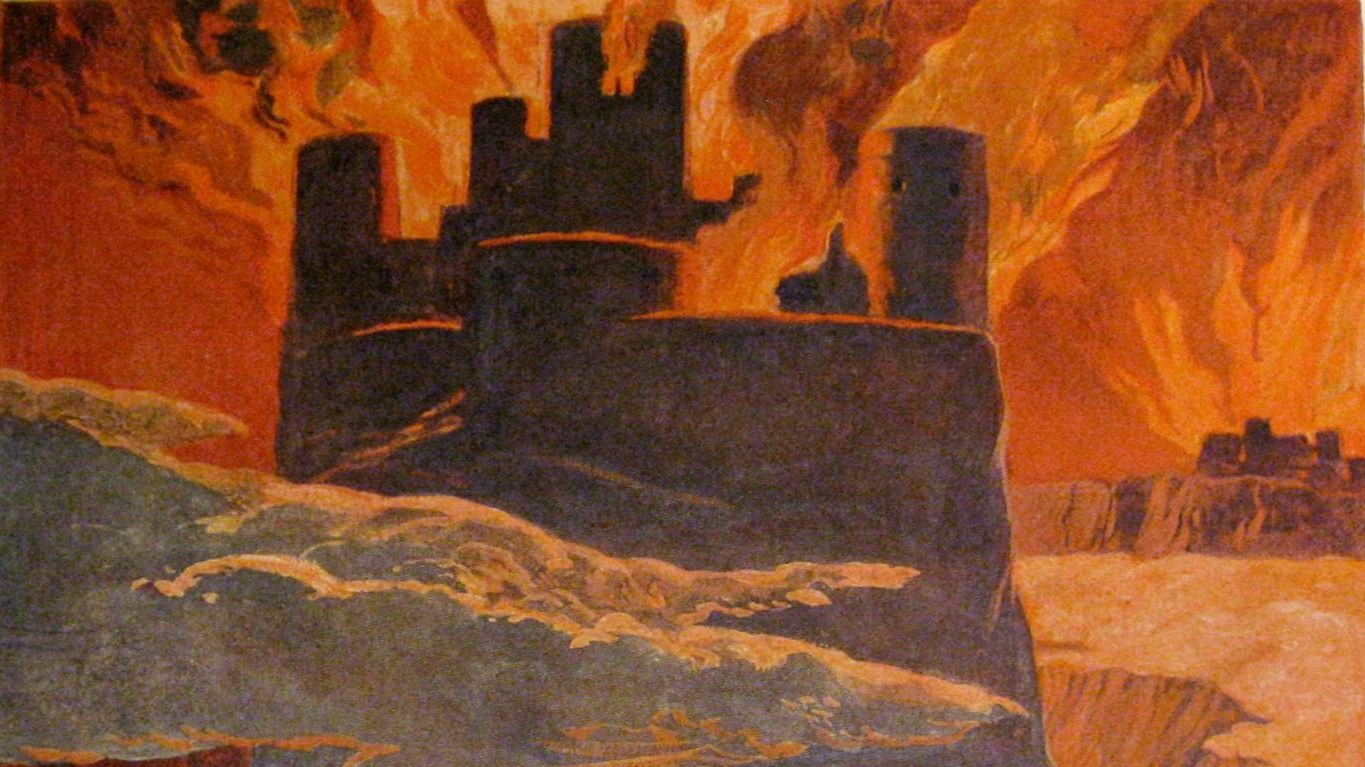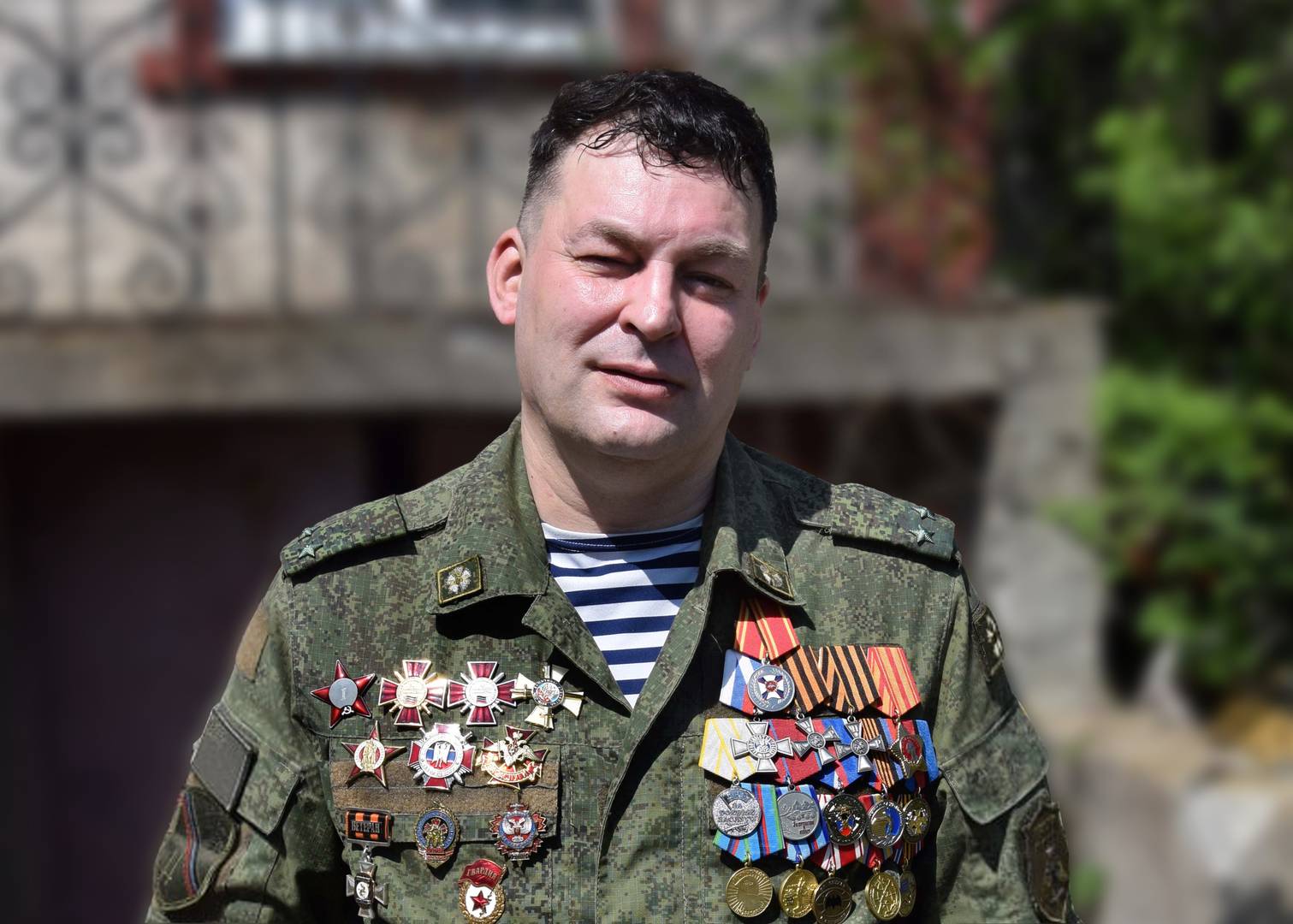About a week after we moved to Vostok brigade base we got ill. We lived in car repair bay at the time. Almost all of the personnel of our unit had cold-related diseases. Endless kitchen duties were an addition to this, which seemed ridiculous in the wake of ongoing combats. But we did the work we were assigned without complaining. The guys from the brigade treated us as a training company.
Moving to another barracks was not just moving to a new place, but really a new stage of our lives. The living conditions dramatically improved. Water, lavatory, lots of sunlight, arms room. We received weapons and uniform. We were no longer treated like a service company, but like a proper military unit.
The combat group started to be put together back in the car repair bay. It was finally put together in the new barracks, after which exhausting training and exercises started. Tactics, formation in line, regrouping into combat deployment, exercises on securing buildings, etc. It is worth considering that Donetsk at that point was, in essence, surrounded, and all of us expected an invasion, preparing for urban combat. Enemy’s sabotage recon groups were active in Donetsk. They were riding across the city on vans and shelling residential districts by 82mm mortars. One of the first of our assignments was to track down such a group.
Right after the liberation Yasinovataya, the combat group changed the base and moved closer to the frontline. We were now located near the train station. At that time Yasinovataya and the nearby worker’s settlements were as if deserted. Few passersby, mortar shellings, destruction. Ghost mortars appeared again. This time in Mineralnoye village. Our unit moved out to get the enemy out of Mineralnoye and nearby country houses. Then we prepared an ambush. As a result of joint actions with other units of the brigade, the shelling of Yasinovataya by sabotage groups by mortars had ceased.
We carried out 24/7 guard duties in the train station. It was a frontline zone and enemy’s breakthrough and actions of the enemy’s sabotage groups behind our lines were to be expected.
Together with guard duties and night duties we continued our training and learning. The load increased, living conditions improved, but life got much more exciting. It was at that time that new militiamen from the training company joined our unit. The combat group almost doubled in numbers.
Then there was the Panteleimonovka offensive. This is how it went: in the morning we started to prepare for the offensive. Then we received the command to get onto the tanks. Riding on the tanks we got to the place. In the area of Vasilevka we dismounted. Came under “Grad”, mortars and artillery shelling. Tanks rushed to do their combat assignment. We joined other units of Vostok brigade. We were under dense mortar shelling. Dashing, dropping to the ground from time to time, we reached a gully where we stayed for a while. At times the shelling stopped, at times it renewed with renewed vigor. While waiting for an opportunity to attack, we encountered our recon unit. They approached us from the frontline. They reported to the commander on discovering the enemy’s IFVs and APCs. Our commanders, finally, received an order to attack. We moved out across the field in the direction of Lebyazhie and Vasilevka villages.
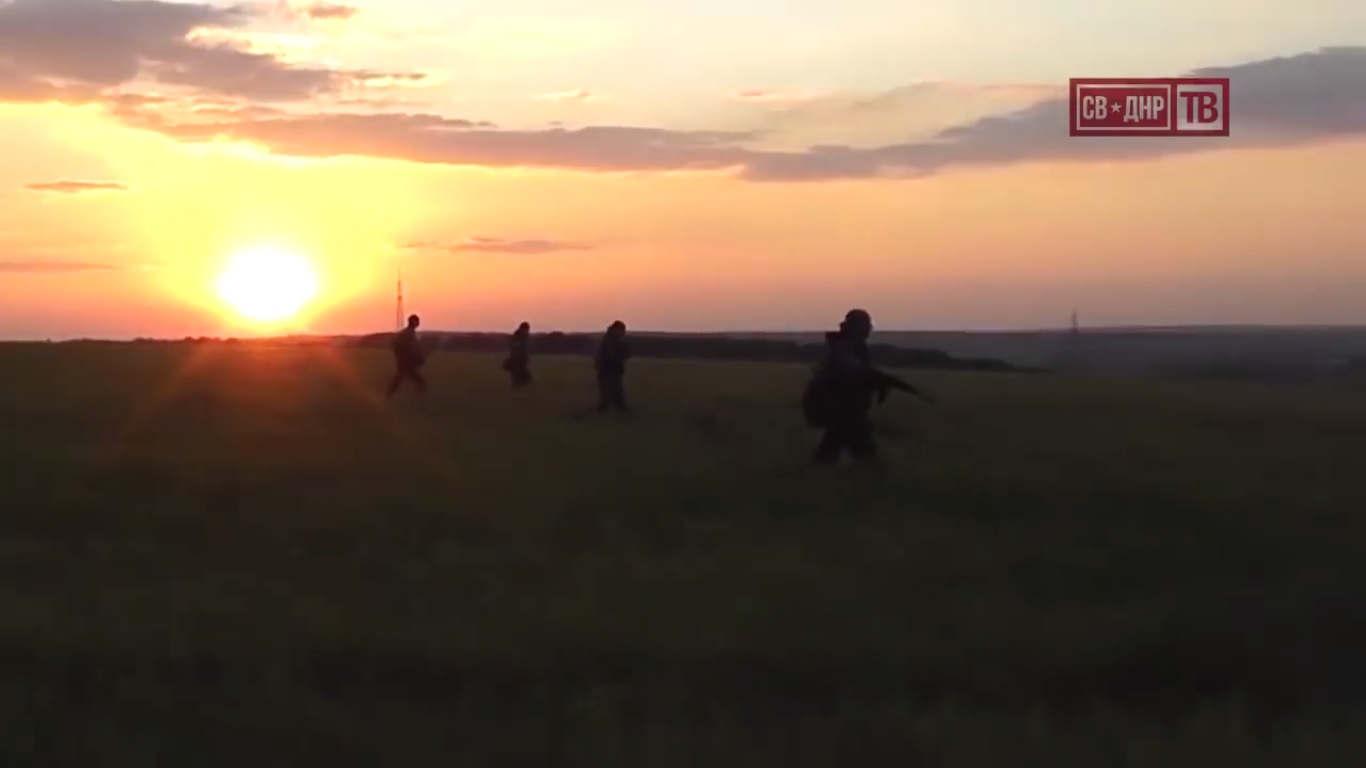
We entered the village from the hill. From the top of the hill we witnessed an image that resembled stills from movies about the Great Patriotic War. Tanks slowly crawled into the village. A little behind and to the side of them was walking the infantry. And all of this — with a beautiful steppe dawn in the background.
We stayed for the night in an abandoned house, and that’s when we started to get mercilessly bombed. Large mortar shells exploded some tens of meters away from us, and all that was left to do is to lie down and wait.
Formation in the morning, embarkation on combat vehicles — and we move again. This time Panteleimonovka was waiting for its liberators. When we entered it and walked through the streets of this village, residents ran our of their houses and cheerfully greeted us. The women were crying. I remembered the stills from the documentaries about the Great Patriotic War again.
We stayed in the foliage and got once again heavily shelled by enemy’s artillery. Mars and I received an order to capture the hill nearby for observation purposes. By the evening we were relieved from our post. That’s when such a heavy shelling started that those who survived it keep talking about to this day. Mortar shells were exploding in the tree crowns, and the shrapnel was all around the terrain. By the evening we were getting it out of our canned meat. Nobody got hit back then. When it got quite, there was only one desire — to dig into the ground. And we started to dig trenches.
Then we relocated to more comfortable and fortified positions. Organizes guard posts, made ourselves at home. Started to prepare for defense. We were digging trenches, practiced moving out to combat positions as a part of tank groups. Our main task was back then to defend the tanks during combat
Learning and training never ceased. Part of the unit was in Panteleimonovka, while the other part was in Yasinovataya and underwent shooting and tactical training. Then rotation was happening. That is how the rhythm and tempo of the learning, training and combat work was set. Life, as it seemed, became stable. And that’s when we received an order — take off in two hours and arrive to Yasinovataya. I liked Panteleimonovka. A beautiful settlement of workers. Its welcoming, kind residents. It was a pity to leave it. But war is war, and we had other combat assignment.
Other stories of “Essence of Time” unit soldiers: “Essence of Time” unit in Donbass
Source (for copy): https://eu.eot.su/?p=9732

